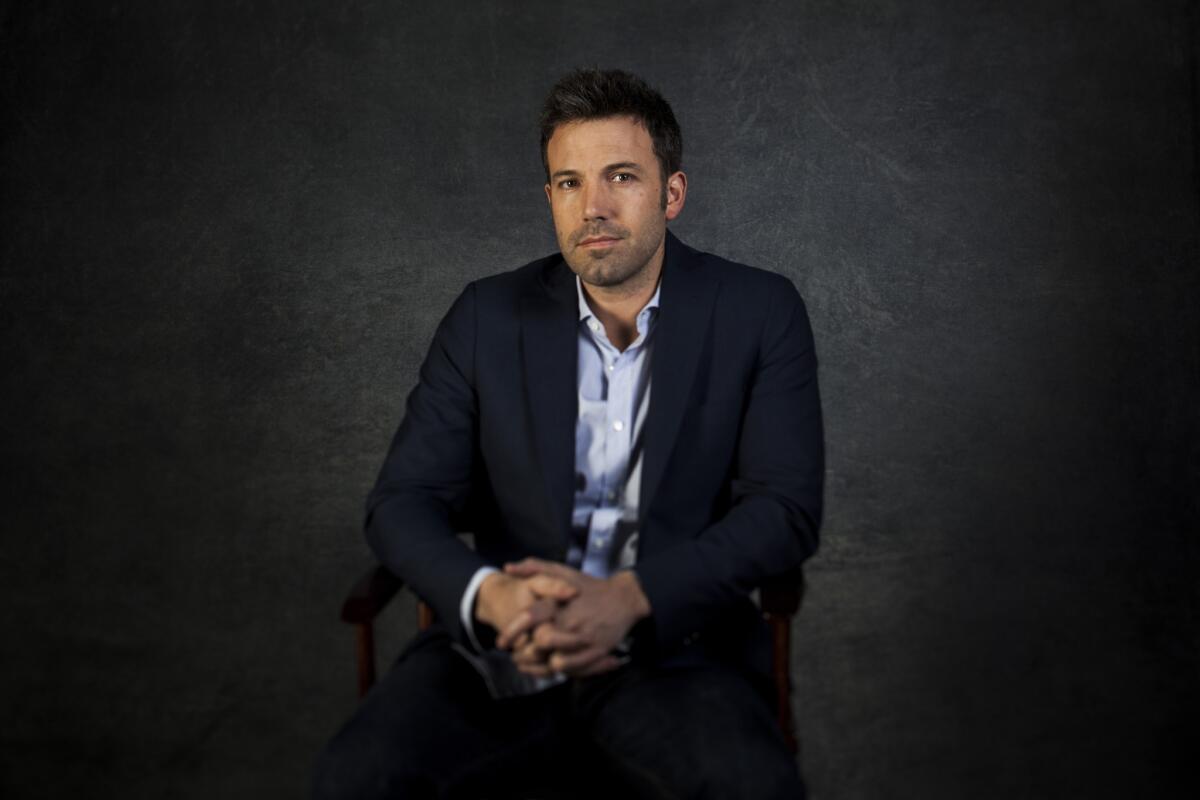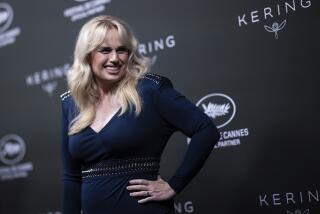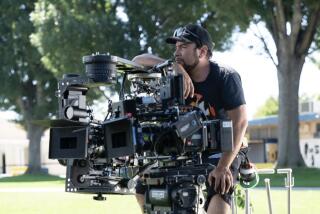Ben Affleck movie sues insurer in dispute over COVID-19 insurance

- Share via
The Los Angeles-based production company behind a Ben Affleck heist movie sued its insurer after it refused to extend coverage without excluding losses linked to COVID-19.
According to the suit alleging breach of contract and fraud filed in U.S. District Court in Los Angeles on Thursday, Chubb National Insurance, which provided Hoosegow Productions Inc. with a multimillion-dollar film producers risk policy, reneged on an agreement by refusing to extend coverage after the shoot was delayed.
After the April production start date was derailed by the health crisis, the insurer said it would renew the policy only without covering losses linked to COVID-19, the producers alleged.
Chubb “categorically refused to extend the policy’s expiration date and refused to honor its earlier representations and promises and its long-established custom and practice,” the plaintiffs said. “It stated that this was ‘a global Chubb position’ after the shutdowns of productions had begun.”
New Jersey-based Chubb doesn’t comment on pending legal matters, spokesman Eric Samansky said.
The coronavirus shut down Hollywood production. How much will insurance companies pay to help studios cover their losses?
The dispute highlights the challenges facing the film and television industry as it seeks to revive productions stymied by the first outbreaks of COVID-19 last spring. Productions rely on insurance that protects them from losses that can run into the hundreds of thousands of dollars a day if shut down, including if cast or crew cannot film because of sickness or death. But during the pandemic, insurance underwriters started excluding losses linked to the coronavirus.
“Hoosegow is unable to reasonably obtain a comparable insurance policy at a similar premium for ‘Hypnotic’ without an exclusion for losses associated with COVID-19, viruses, and the pandemic,” the production said in its suit.
Directed by Robert Rodriguez, “Hypnotic” is a large-budget action thriller featuring Affleck as a detective who, while investigating a string of high-end heists, becomes wrapped up in a mystery over his missing daughter and a secret government program. It had been due to start shooting in April.
The production described Chubb National as one of the industry’s largest providers of film producers risk insurance and claimed the insurer has taken the same stance with other film producers.
“Chubb National has refused, and is refusing, to extend policy expiration dates under Film Producers Risk insurance policies … and is doing so as to motion picture and television productions across the entertainment industry as a whole since the pandemic began,” the complaint states.
To restart the shoot, “Hypnotic” depended on having the insurance in place through completion of the production, according to the lawsuit. Without that coverage, the production faced losing the money it had invested and committed to pay in connection with the feature. Hoosegow is seeking unspecified damages and a jury trial.
The production company secured the policy in October through its insurance broker Arthur J. Gallagher & Co., a popular broker in the film industry. It wanted coverage to run to March 21, 2021, but the insurer suggested an expiration date of Oct. 28, 2020, which it “can extend as needed.”
The “Hypnotic” production said it has been Chubb’s “custom and practice” to extend the expiration dates of such policies for film and television productions when they are delayed and not likely to be completed before the policy’s expiration date. It said Chubb ignored its queries for two months.
Hollywood is a key market for insurers. The industry commands the most premiums with an estimated $400 million annually in 2019, according to insurance company Allianz Global Corporate & Specialty.
Insurance companies started excluding COVID-19 from new policies or adding exclusions for pandemics after the health crisis as a way to curtail losses. Filmmakers typically take out insurance that covers them for losses in case cast members get sick or die and also for shutdowns linked to government mandates or natural disasters that would prevent filming.
Britain, a huge hub for filming where major productions such as Warner Bros.’ “The Batman” have already restarted, created a 500-million-pound ($647 million) insurance fund in July to help television and film companies that have struggled to get coronavirus-related coverage.
One of Hollywood’s biggest shoots during the pandemic has been shut down after lead actor Robert Pattinson tested positive for COVID-19 on set.
U.S. legislators such as Rep. Maxine Waters (D-Los Angeles) have been pushing for a plan similar to the Terrorism Risk Insurance Act, a federal reinsurance program that came into force when insurers began excluding coverage for terrorism after the 9/11 attacks. Legislators from New York introduced the Pandemic Risk Insurance Act to the House of Representatives in May.
More to Read
Inside the business of entertainment
The Wide Shot brings you news, analysis and insights on everything from streaming wars to production — and what it all means for the future.
You may occasionally receive promotional content from the Los Angeles Times.












